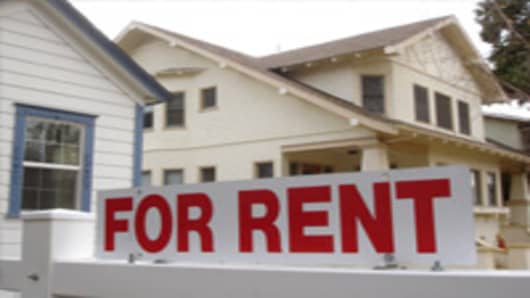I spent this morning at a conference by Harvard's Joint Center for Housing Studies. They released a survey showing one in four renters, low and middle income, are spending more than half their income on rent and utilities. That's about 10 million households.
As rental demand surges, and supply dwindles, rents are going up, and wages are not rising to meet the new rental normal.
"These affordability problems are marching up the income scale," notes JCHS's Eric Belsky. "It means more people have less money to spend on household necessities such as food, health care, and savings."
This study came out about an hour before the folks at S&P/Case Shiller informed us that home prices are now a "hair's breadth" away from the dreaded double-dip. If prices are so low, you would think some of those renters might be prompted to buy, but noooo. Tight credit and a complete lack of confidence in the investment value of a home are keeping all those potential buyers on the rent rolls.
So now we have a new conundrum. You can't/don't want to buy, but you're going to pay an arm and a leg to rent. This point is not lost on the Secretary of Housing and Urban Development, Shaun Donovan, whom I interviewed this morning at the conference.



